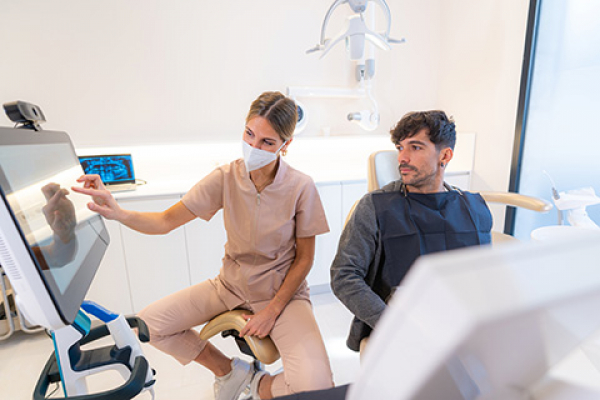
Dr. José Breñoso, researcher at the Universidad Internacional Iberoamericana (International Iberoamerican University, UNIB), together with a group of experts in different areas, presents a study on the scope and limitations of the implementation of artificial intelligence in the field of dentistry.
Artificial intelligence (AI) has been widely used in medicine since its conception more than 60 years ago. Although in dentistry, disciplines such as periodontics, endodontics, orthodontics, restorative dentistry, and oral pathology have experienced a lag in the adoption of AI.
The research reveals a growing interest in the application of AI in various dental disciplines, including dental disease diagnosis, localization, classification, estimation, and evaluation of dental diseases. The crucial role of artificial neural networks (ANNs) as clinical decision support systems is highlighted, as well as the use of fuzzy logic (FL) in these processes.
The study addresses the historical development of ANNs, machine learning (ML), and deep learning (DL), highlighting their application in brain modeling and real-world problem solving. ML, which uses algorithms and statistical models, has experienced a boom in recent years, offering superior performance in dental applications such as disease diagnosis, prognosis, treatment, and automation of clinical flows.
However, the study also highlights limitations in the implementation of AI techniques in dentistry. Issues of computational capacity, reliability, generalization, class imbalance, and overfitting are identified as challenges. The lack of labeled quality data sets also limits the implementation of accurate models.
From UNIB, highlighting the need for larger datasets, greater reliability, and generalization, as well as mitigation of overfitting problems, are proposed future directions to overcome these limitations. Although AI has contributed significantly to dentistry, it is recognized that it will not replace the dentist-patient relationship in the foreseeable future, as human elements remain central to dental care decision-making.
Artificial intelligence offers significant potential for improving accuracy and efficiency in dentistry, but continued efforts are required to address the identified limitations and ensure the effective application of artificial intelligence-based networks within dental practice.
If you want to know more about this fascinating study, click here.
For further research, check the UNIB repository.
Finally, the Universidad Internacional Iberoamericana (UNIB) offers the Master in Strategic Management with a Specialty in Information Technology. This program allows you to acquire the skills to face the competitiveness of new businesses.